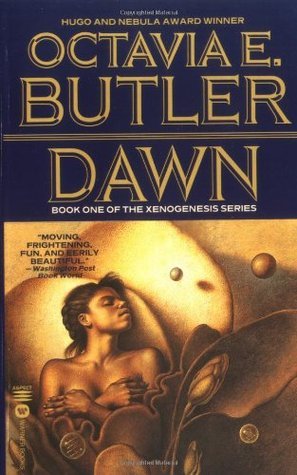
Part of Series
Lilith Iyapo has just lost her husband and son when atomic fire consumes Earth—the last stage of the planet’s final war. Hundreds of years later Lilith awakes, deep in the hold of a massive alien spacecraft piloted by the Oankali—who arrived just in time to save humanity from extinction. They have kept Lilith and other survivors asleep for centuries, as they learned whatever they could about Earth. Now it is time for Lilith to lead them back to her home world, but life among the Oankali on the newly resettled planet will be nothing like it was before. The Oankali survive by genetically merging with primitive civilizations—whether their new hosts like it or not. For the first time since the nuclear holocaust, Earth will be inhabited. Grass will grow, animals will run, and people will learn to survive the planet’s untamed wilderness. But their children will not be human. Not exactly.
Author

Octavia Estelle Butler was an American science fiction writer, one of the best-known among the few African-American women in the field. She won both Hugo and Nebula awards. In 1995, she became the first science fiction writer to receive the MacArthur Foundation "Genius" Grant. After her father died, Butler was raised by her widowed mother. Extremely shy as a child, Octavia found an outlet at the library reading fantasy, and in writing. She began writing science fiction as a teenager. She attended community college during the Black Power movement, and while participating in a local writer's workshop was encouraged to attend the Clarion Workshop, which focused on science fiction. She soon sold her first stories and by the late 1970s had become sufficiently successful as an author that she was able to pursue writing full-time. Her books and short stories drew the favorable attention of the public and awards judges. She also taught writer's workshops, and eventually relocated to Washington state. Butler died of a stroke at the age of 58. Her papers are held in the research collection of the Huntington Library.

